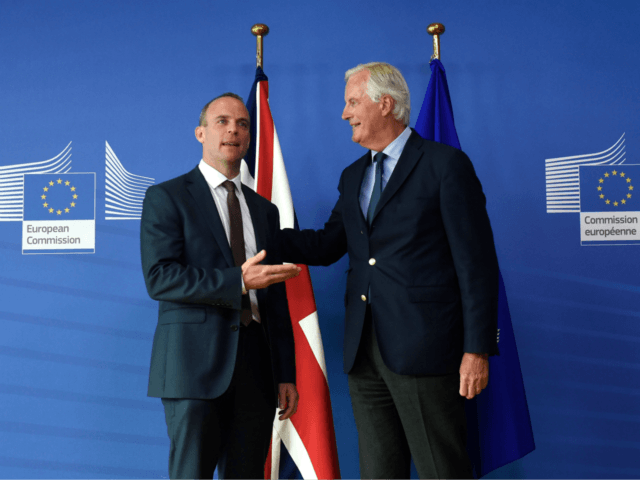The European Union (EU) wants to make the Brexit divorce settlement unchangeable, meaning a future government would be stuck with Theresa May’s “soft” Brexit and many of the bloc’s rules if the Prime Minister gets her way.
According to confidential diplomatic notes, seen by The Times, Brussels is planning to demand that Mrs May make “credible” assurances that any deal will not be altered or improved by her successor.
The news comes after Michael Gove, the Environment Secretary, said over the weekend that an independent UK and its elected future leader could “choose to alter” the nation’s relationship with the Brussels bloc after Brexit.
Unlike former Foreign Secretary Boris Johnson, pro-Leave Mr Gove did not resign in protest of Mrs May’s “soft” Brexit plan, which means the UK will accept many EU rules with no say in making them.
His statement was seen as a reassurance to fellow Tory Brexiteers who may be unsure about backing Mrs May’s plans, with around 80 reportedly prepared to vote down the “Chequers” plan in parliament.
The EU’s chief Brexit negotiator, Michel Barnier, reportedly made the demand for the cast iron final deal at a meeting of senior EU ambassadors in Brussels last week.
During the meeting, Sabine Weyand, a senior German European Commission official and Mr Barnier’s deputy, warned that Britain’s unwritten constitution could mean the UK might be able to alter the arrangement in the future.
“The commission said to be careful because it was not clear what ‘miracles’ UK constitutional law could allow,” a diplomatic note giving an account of the talks on September 12 said.
“It would be possible that [the EU] accepted painful compromises to avoid a failure and then the UK would want to continue negotiating because suddenly it’s possible again.”
According to the note, Ms Weyand added: “We [the EU] will need credible political promises from the UK.”
It has long been the case that no one British government can bind a successor, as any legislation passed during one term can simply be struck off by passing new legislation in the future. The same theory applies to international treaties and agreements.
On Monday, it was reported that Mr Barnier’s position on the Northern Irish border is softening, with him considering allowing the use of technology to keep trade flowing without checks.
The EU had previously insisted on no new infrastructure on the border and demanding the entire province remain in the bloc’s Single Market.

COMMENTS
Please let us know if you're having issues with commenting.